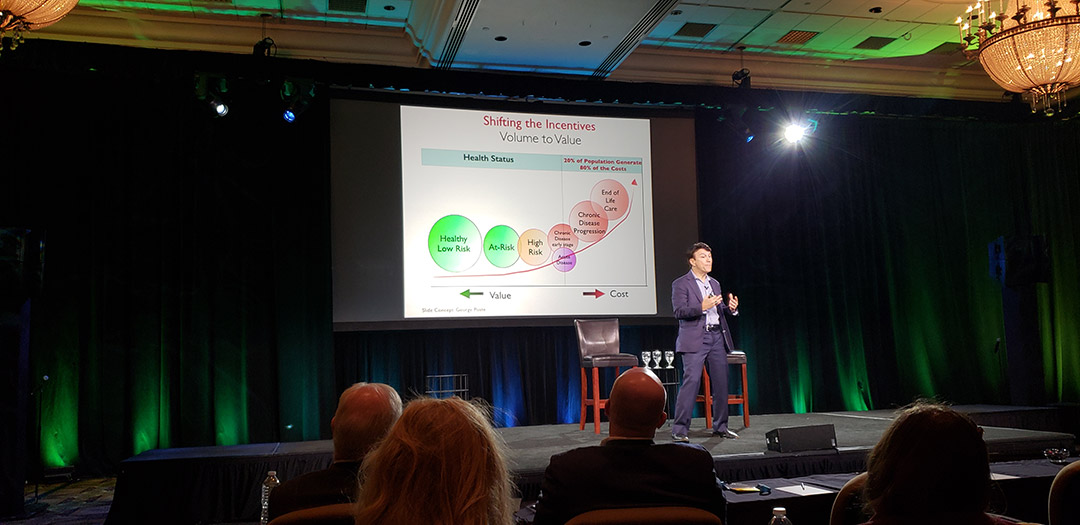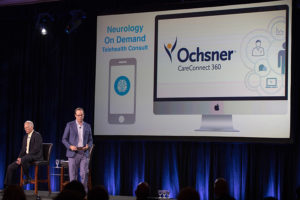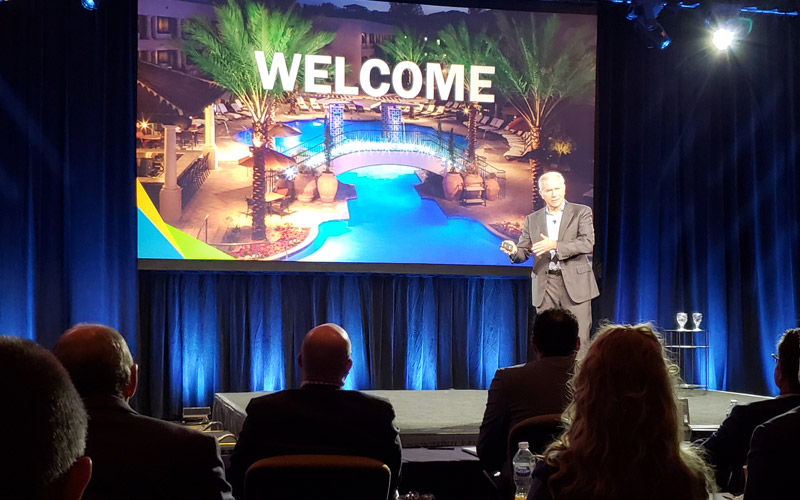 The pace of technological change rarely has a rapid and dramatic impact on large swaths of industries. For example, it took over a dozen years for the rise of the internet to so dramatically change the shape of the home entertainment industry that the digital world put the old business model to bed. Blockbuster famously passed up the chance to acquire Netflix in 2000, 13 years before finally closing its doors.
The pace of technological change rarely has a rapid and dramatic impact on large swaths of industries. For example, it took over a dozen years for the rise of the internet to so dramatically change the shape of the home entertainment industry that the digital world put the old business model to bed. Blockbuster famously passed up the chance to acquire Netflix in 2000, 13 years before finally closing its doors.
The healthcare industry doesn’t have the luxury of waiting another dozen years.
 If you’re not planning for change, you’re going to be left behind, warned Drs. Robert Hart and David Houghton of Ochsner Health Systems at the Vidyo Healthcare Summit. They referred to the recent merger of Aetna and CVS, which completely changes the landscape for healthcare delivery organizations across the United States, who now compete with national, rather than regional, players.
If you’re not planning for change, you’re going to be left behind, warned Drs. Robert Hart and David Houghton of Ochsner Health Systems at the Vidyo Healthcare Summit. They referred to the recent merger of Aetna and CVS, which completely changes the landscape for healthcare delivery organizations across the United States, who now compete with national, rather than regional, players.
Dr. Daniel Kraft, founder and chair of Exponential Medicine and chair for medicine of Singularity University, depicted the accelerated pace of disruptive innovation and creative application of those innovations. He challenged the healthcare industry to determine how best to connect the dots and evolve from today’s illness model to a more sustainable wellness model.
In his keynote, Vidyo’s chairman and CEO, Michael Patsalos-Fox, urged attendees to consider the elements that make a successful virtual health strategy: platform, ecosystem, and community. He also asked us to consider how these elements fit into delivering an evolutionary, interconnected, and frictionless experience to providers and patients alike.
We’ll discuss these concepts at length in the Vidyo blog in the weeks to come, as we digest everything we learned at the event.
As the head of marketing at Vidyo, what resonated most for me was the enthusiasm displayed by all who attended the summit: our customers — clinicians, technologists, and administrators; our partners who sponsored the event, demonstrating the breadth and depth of the Vidyo ecosystem; and the Vidyo team.
Our sponsors told me how important it was not only for them to meet our mutual customers, but also to network with one another as we meet at the intersection of innovation and creativity.
We’re all rushing into this brave new world eyes open and together.
The opening customer keynote of the event set the stage for further discussion. Jerry Mansfield and Brett Seyfried of the Medical University of South Carolina shared moving advice from a mother who tragically lost a newborn, offering her counsel on what was important to her and to others in her situation. The team at MUSC has built upon her advice, as well as that of many others, in the design and construction of a new pediatric hospital, founded on patient experience. That hospital opens in 2019.
As I left Scottsdale following the event, I thought about the unconference facilitated by Dr. Kraft, in which he encouraged teams to invent, design, and even name seven innovative business ideas that are relevant today. Seven viable designs, any one of which could well disrupt an industry, came out of the session.
The pace of innovative technological change in healthcare, as well as the creative application of those innovations, is accelerating daily.
The future really is now.
What will your job look like in three years?

Recent Comments